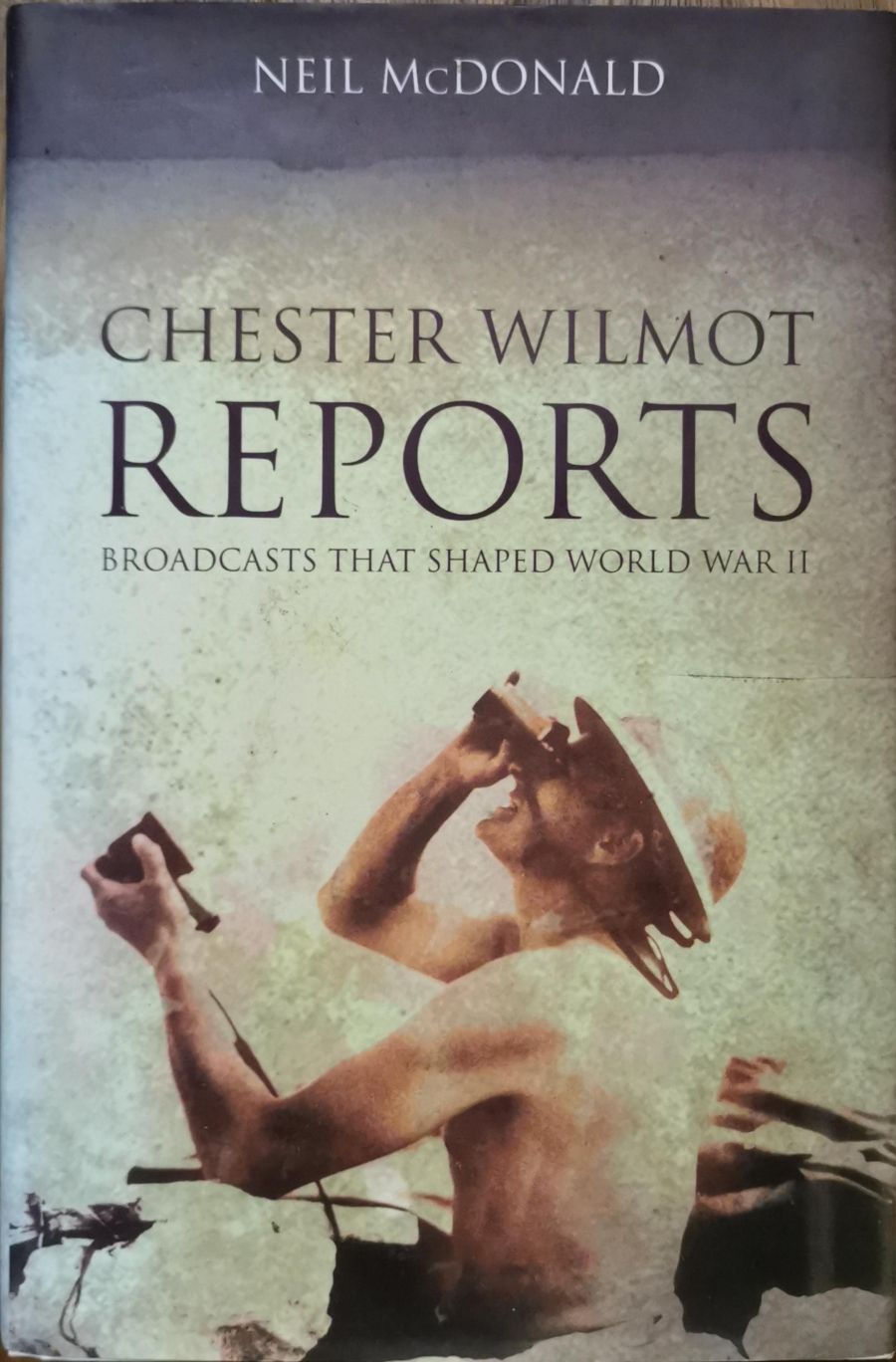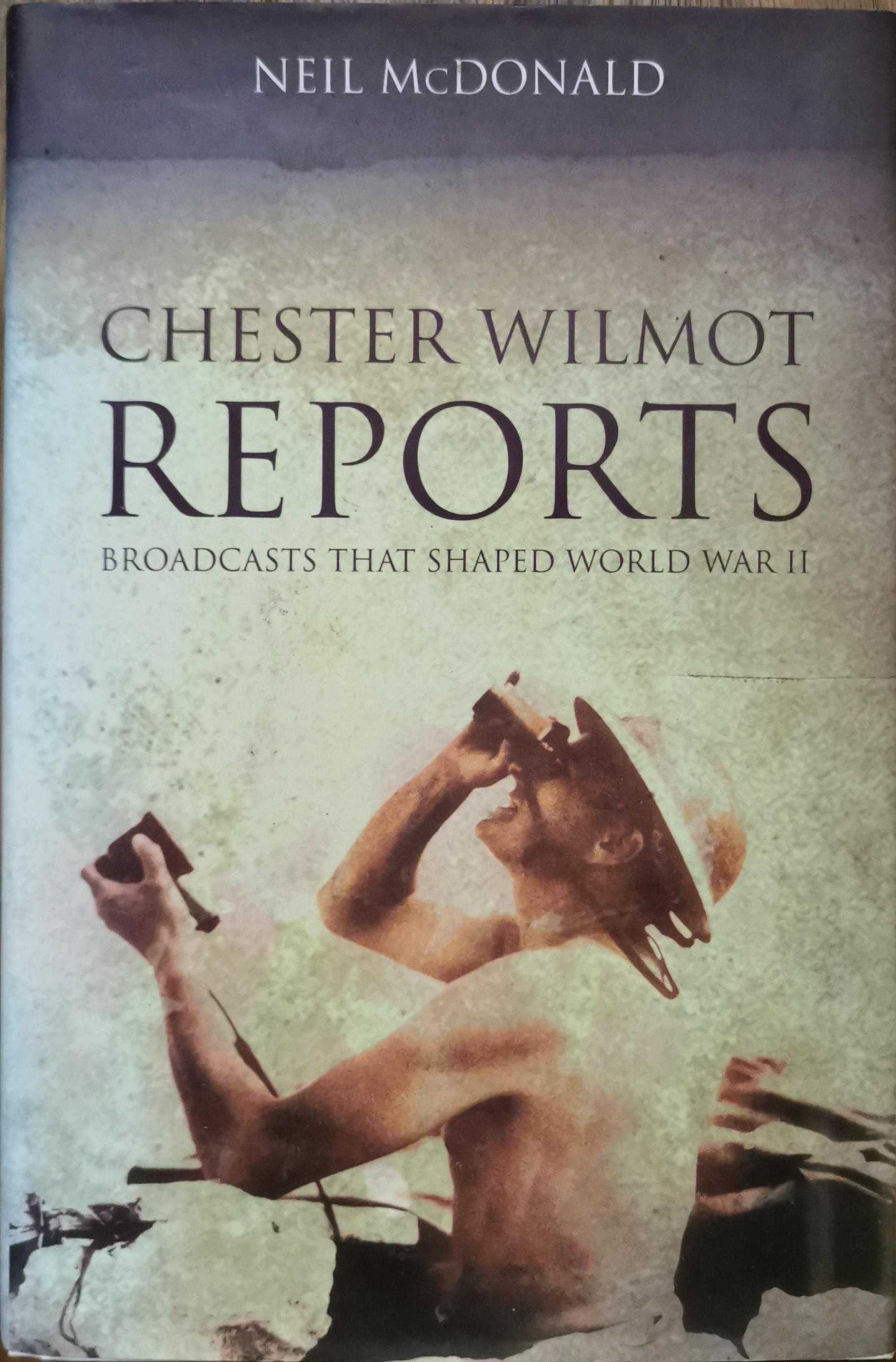
- Free Article: No
- Contents Category: History
- Review Article: Yes
- Article Title: An Appetiser
- Online Only: No
- Custom Highlight Text:
Chester Wilmot was killed when the Comet airliner he was flying to London crashed near Rome on 10 January 1954. The ABC and BBC radio journalist had survived six dangerous years as a war correspondent in World War II only to fall victim to an aircraft design fault. Wilmot’s untimely death was also a great loss for Australian history, as he had recently been commissioned to write the volume of the Australian official history on the vital North African battles of Tobruk and Alamein. His best-selling Tobruk 1941: Capture, Siege, Relief (1944) and The Struggle for Europe (1952) indicate that he would have written a history that was authoritative, incisive and enthralling. Neil McDonald suggests in this new book that Wilmot would also have had quite a bit to say about the senior wartime Australian army commander, General Thomas Blamey.
- Book 1 Title: Chester Wilmot Reports
- Book 1 Subtitle: Broadcasts that shaped World War II
- Book 1 Biblio: ABC Books, $49.95 hb, 412pp
- Book 1 Cover Small (400 x 600):

- Book 1 Cover (800 x 1200):

McDonald is currently writing a biography of Wilmot, and this compilation of ABC radio scripts from 1939 to 1942 is an appetiser that will heighten expectation for that much anticipated, larger work. Sensibly, McDonald broadcaster to speak direct to the reader in his own words, with minimal editorial intrusion. Wilmot arrived in the Mediterranean in late 1940 with the ABC mobile broadcasting unit, and reported the rapid Australian retreat from Greece. He covered the campaign against the Vichy French in Syria and made the perilous voyage to the besieged Libyan port of Tobruk, where he interviewed some of the beleaguered Australian defenders while artillery boomed in the background. Following the outbreak of war in the Pacific, Wilmot returned to Australia to report on the fighting in New Guinea. Here, he discarded the glib patriotism of his earlier work for a mature voice, awed by the endurance of the soldiers withdrawing along the muddy track from Kokoda but finding fault with the supply shortages that hampered their defence. Wilmot became a critic of Blamey as senior commander; in late 1942 the general responded by withdrawing Wilmot’s accreditation as a war correspondent.
Blamey made many wrong decisions, and his petulant banning of Wilmot is obviously one of them. However, McDonald’s portrayal of the general as a villain with no redeeming features goes too far. Blamey was venal and vindictive, but he provided leadership for the Australian army during the worst years of World War II that few others could have supplied.
McDonald has subtitled this book Broadcasts That Shaped World War II. He argues that Wilmot had a direct impact on the conduct of the Kokoda campaign. According to McDonald, Wilmot became a ‘liaison officer’ for Lieutenant General Sydney Rowell, the commander of New Guinea Force, and the Major-General ‘Tubby’ Allen, the 7th Division commander, took a report by Wilmot with him to the front that ‘significantly influenced’ his planning. This assessment seems hard to sustain. The term ‘liaison officer’ suggests that Wilmot became part of the military chain of command, passing on orders from the commander to subordinate officers. There is no evidence that this was the case. It is true that Rowell and Allen talked to Wilmot and learnt what they could from him, but such relationships between generals and journalists are not as unprecedented as McDonald suggests (Keith Murdoch seems to have had such a relationship with generals in World War I). Senior officers have often sought out reporters for an alternative view of what was happening at the front, and Wilmot believed that war correspondents had a duty to use their journalistic skill in ‘the national interest’. It also must be remembered that, to these generals, Wilmont was just one of their many sources of information. Allen might have carried Wilmot’s paper in his own knapsack in New Guinea, but he was accompanied by a divisional headquarters bearing many other reports.
Blamey prevented Wilmot from reporting on the Australians fighting in the Pacific, so he found work with the BBC in the team of journalists preparing to cover the invasion of France in 1944. Wilmot landed with British airborne troops in the early hours of D-Day and covered the campaigns in the north-west Europe from Normandy to the final German surrender. It is a pity that McDonald did not include any of these scripts in this book. They are Wilmot’s best work and included regular reports for the ABC. Wilmot commented at the end of the war that these live broadcasts enabled him ‘to speak three times a week direct from the Continent to my own country and to my family in Australia’. In this book, McDonald enables Wilmot to speak direct from the 1940s to present-day readers.


Comments powered by CComment